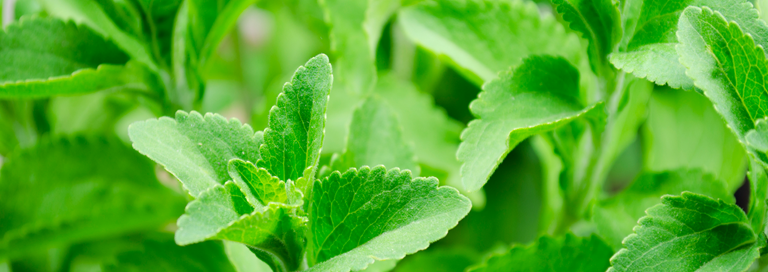Do you g
ive a lot of thought to the health of your liver? If you don’t, maybe it’s time you do.In the near future, fatty liver disease is projected to become the major reason for liver transplants…beating out alcoholic cirrhosis, cancer, and hepatitis.
A huge part of the problem is artificial sweeteners. Ironically, a sugar substitute is also part of the solution.
Let me explain…
Your liver is the workhorse of your entire digestive system. It’s essential for breaking down and eliminating waste from your body.
But a new study found that two sugar alternatives can interfere with a digestive system protein called P-glycoprotein 1, or PGP.1
This “housekeeping” protein sweeps toxins from your cells. It also plays a vital role in helping your liver metabolize certain drugs, including blood pressure medications, antidepressants, and antibiotics.
If these toxins remain trapped in liver cells, they easily build up to cause liver toxicity.
The two liver-destroying sweeteners are acesulfame potassium and sucralose.
Acesulfame potassium is sold under the brand names Sunett and Sweet One. It’s about 200 times sweeter than sugar and is often combined with other sweeteners since it has a bitter aftertaste.
Big Agra likes to use Ace-K because it’s stable at high temperatures and soluble in water. That makes it easy to add to all kinds of processed foods. But what they try to hide is that this franken-sweetener contains a known carcinogen called methylene chloride. Both the EPA and OSHA recognize ACE-K as a hazardous substance for humans.2
According to studies, headaches, depression, nausea, mental confusion, liver effects, kidney effects, visual disturbances, and cancer can all result from long-term exposure to methylene chloride.3
Of all the artificial sweeteners, Acesulfame-K has undergone the least scientific scrutiny. Early studies showed a link to multiple cancer developments in lab animals.
Sucralose is sold under the brand name Splenda. The FDA approved it as a general-purpose sweetener in 1999 – and labeled it as generally recognized as safe, or GRAS.
It’s anything but…
Sucralose was originally discovered by scientists trying to develop a new insecticide. It was never intended for human consumption.4
But a few years later, it was introduced to an unsuspecting public as a “natural sugar substitute.”
In the 23 years since sucralose was first added to tens of thousands of food and drink products, the research on its health effects has been damning – especially regarding the number-one epidemic we face, diabetes.
A recent study found that consuming sucralose in the presence of a carbohydrate rapidly impairs glucose metabolism. The result is diabetes and its associated conditions – including hypertension, stroke, heart disease, and dementia.5
This backs up an earlier study published in the journal Diabetes Care. This research revealed that diet soda sweetened with Splenda is associated with a 36% greater risk of metabolic syndrome and a 67% greater risk of type 2 diabetes.6
Of course, you won’t hear this from the maker of Splenda – or the FDA. They both insist sucralose is beneficial for diabetics because it replaces real sugar. If you’re a regular reader, you know how false this is.
Sucralose is also linked to gut diseases… like irritable bowel syndrome, obesity, and inflammation.
Try these two sweets that treat your liver right
I’ve been warning my patients and readers about the dangers of synthetic sweeteners and unnatural, refined table sugar for years.
But that doesn’t mean you’re doomed to a lifetime of bland food. Nature provided us with a bounty of sweet alternative solutions.
-
- Use this healthy sweet herb. I’ve recommended stevia for years because it lowers glucose levels and improves insulin sensitivity. Now we know it also protects the liver. In an independent study, researchers determined that this South American plant prevents chronic liver damage by improving several markers of fatty liver disease – including overall fat levels and scarring.7 Sadly, like many foods that became mainstream, this once all-natural plant is morphing into an artificial sweetener. Processed stevia you find in the grocery store is often mixed with chemical fillers like GMO corn Erythritol or even cane sugar. I recommend you buy pure, organic stevia in bulk. It’s available as a fine green powder. It costs a little more, but because it’s up to 350 times sweeter than sugar, you only need a tiny bit.
- Try the jewel of the Andes. I learned about yacon when I was traveling in Peru. Ancient Incas used to eat the roots for endurance. It’s a good choice for diabetics because it has fructooligosaccharides. Your body can’t digest this type of sugar so that it won’t affect blood glucose levels. Yacon also contains prebiotic inulin. This helps you digest other foods and enhances immunity by promoting beneficial bacteria in your intestines. Yacon has a pleasant apple-like flavor. It’s easy to make sweet syrup from the roots. Simply juice the tubers, strain out the pulp, and boil over medium heat for three hours. The thick liquid can be stored for up to a year.
To Your Good Health,

Al Sears, MD, CNS
References:
1. Danner L. “Researchers Uncover How Non-Nutritive Sweeteners Disrupt Liver Detoxification.” Presented at the American Society for Biochemistry and Molecular Biology. 2022.
2. Right to Know. “Hazardous Substance Fact Sheet.” 2016. https://nj.gov/health/eoh/rtkweb/documents/fs/1255.pdf. Accessed on May 3, 2022.
3. Karstadt M. “Inadequate toxicity tests of food additive acesulfame.” Int J Occup Environ Health. Jan-Mar 2010;16(1):89-96.
4. Thompson A. “Sweet nothings.” 2008. https://www.newyorker.com/culture/goings-on/sweet-nothings. Accessed on May 3, 2022.
5. Dalenberg J, et al. “Short-term consumption of sucralose with, but not without, carbohydrate impairs neural and metabolic sensitivity to sugar in humans.” Cell Metab. 2020 Mar 3;31(3):493-502.e7.
6. Nettleton J, et al. “Diet soda intake and risk of incident metabolic syndrome and type 2 diabetes in the Multi-Ethnic Study of Atherosclerosis (MESA).” Diabetes Care. 2009 Apr;32(4):688-94.
7. Ramos-Tovar E, et al “Stevia prevents acute and chronic liver injury induced by carbon tetrachloride by blocking oxidative Stress through Nrf2 upregulation.” Oxid Med Cell Longev. 2018 Apr 19;2018:3823426.

